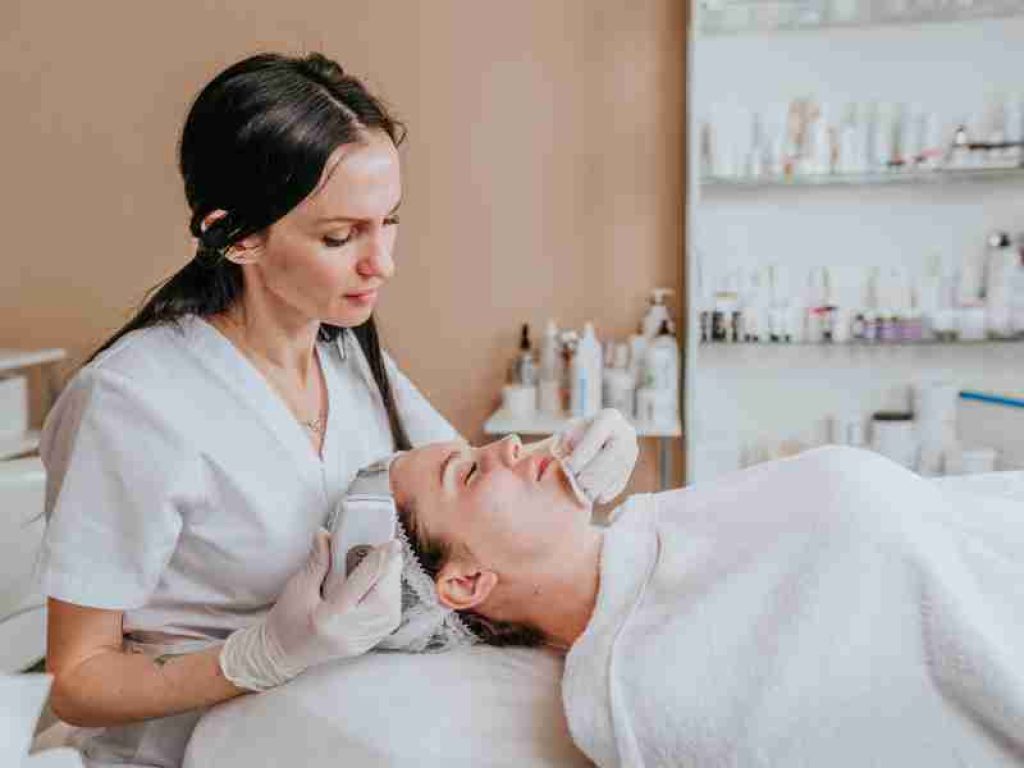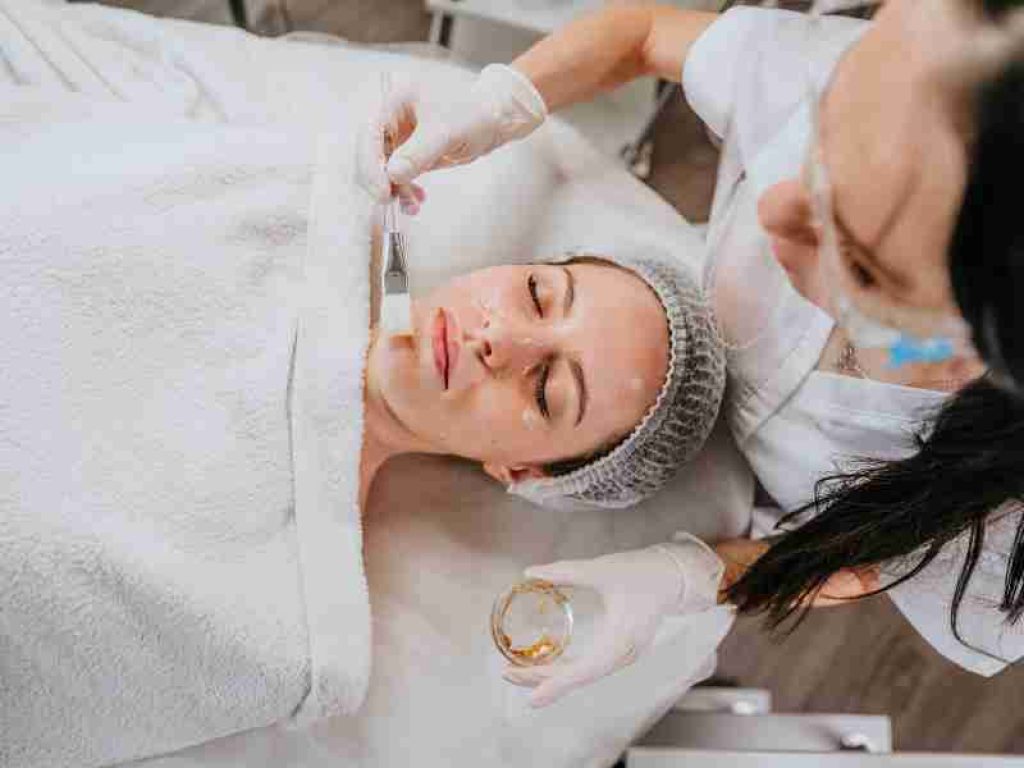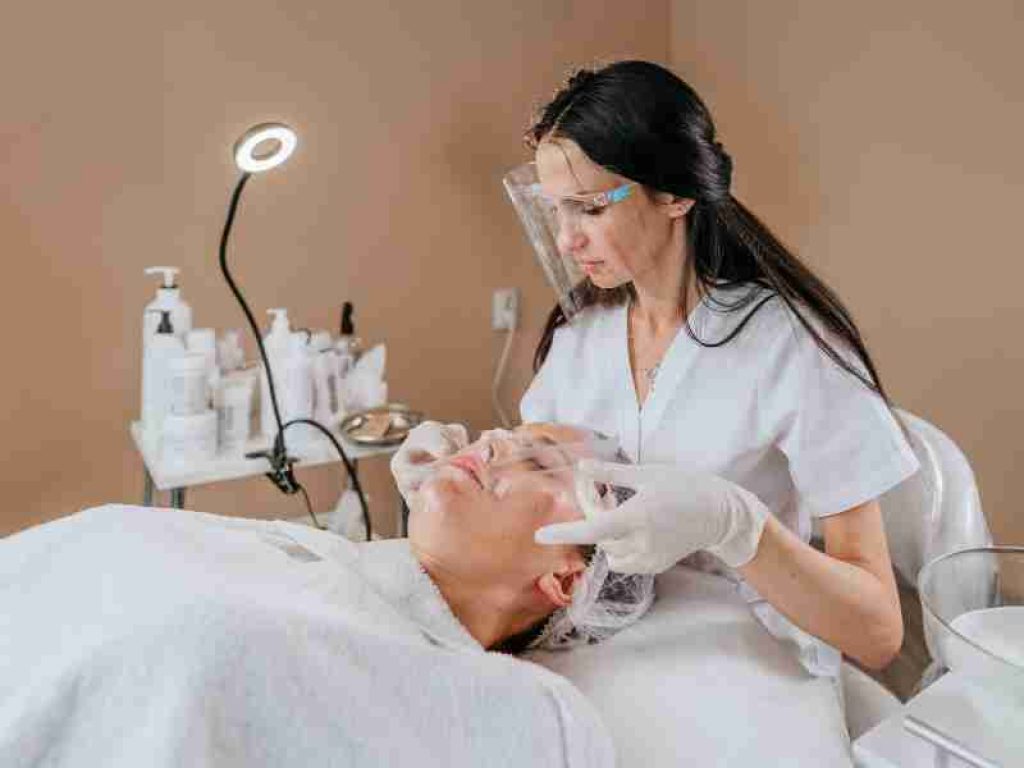
What Is A Nurse Esthetician?
The role of the nurse esthetician is that of a highly trained medical assistant in medical spas and cosmetic surgery clinics. Cosmetic procedures like Botox, dermal fillers, and laser hair removal are administered under the strict supervision of physicians and cosmetic dermatologists.
An interest in aesthetics and a desire to assist others may lead you to consider a career as a nurse esthetician. Read on to find out the essentials.
What is a Nurse Esthetician?
Cosmetic nurses, aesthetic nurses, and esthetic nurses are all alternative names for nurse estheticians. They are trained medical professionals (often RNs or NPs) who can administer cosmetic procedures that aestheticians and medical assistants cannot. Nurses who specialize in aesthetics often work in dental or medical spas under the direction of doctors.

Common cosmetic operations they assist with or perform in these settings include:
- Botox injections
- Derma filler injections
- Hair and skin laser treatments
- Microdermabrasion
- Skin-deep cosmetic procedures, such as laser tattoo removal
- Body-reshaping surgeries, including liposuction
- Scar removal and other noninvasive cosmetic procedures
Surgical practices often employ nurse estheticians who report to the plastic surgeons in charge. Patients in need of reconstructive surgery due to complications from previous operations, burns, or other forms of bodily harm can get aid here.
What duties does a Nurse Esthetician perform?
The services offered by nurse estheticians are extensive. Patients and spa patrons may perform individual treatments from these professionals and group assistance throughout surgical and medical procedures.
The duties of a nurse esthetician may include the following:
- Botox, collagen, and other fillers injections
- Microdermabrasion, chemical peels, photo facials, and light therapy are some services provided.
- Hair removal and skin rejuvenation are only two examples of laser therapy.
- Assessment of patients’ skin conditions
- The provision of pre-and post-operative care to patients
- Helping medical professionals perform cosmetic procedures
- Preparing treatment areas and sanitizing medical equipment
- The effectiveness of pre-medical screening
- Appointment-making and question-answering for prospective cosmetic procedures
- Exploring cutting-edge medical skin care practices and cutting-edge cosmetic procedures
What is the distinction between medical estheticians and nurse estheticians?
The term “medical esthetician” refers to a licensed esthetician who works in the medical area to provide complementary services under the supervision of a doctor or other licensed medical expert.
Under their esthetician’s license, they are qualified to perform various nonsurgical skin care procedures. Manual lymphatic drainage and varicose vein cauterization are two medical procedures in which some medical estheticians specialize.
Patients with burns or chemo-induced skin damage, whom they may treat in a rehabilitation context, are another possible clientele for these professionals. The primary distinction between a nurse esthetician and a medical esthetician is the level of schooling required.
A medical esthetician has a license but no medical background, whereas a nurse esthetician possesses both qualifications. Due to their training and nurse, aesthetic nurses generally have more extensive knowledge and experience than medical estheticians.
What is the work setting of a nurse esthetician?
Depending on the specific procedures they are licensed to perform, aesthetic nurses can operate in a wide range of nurse settings. The bulk of their work is sometimes time-sensitive or emergency-related. Instead, trained professionals perform the skin, potentially resulting in a more attractive patient.

Nurse aestheticians can find themselves working in the following settings:
- Rehabilitation center
- Salon
- Health spa
- Fitness center
- Outpatient medical clinic
- Cosmetic treatment surgery center
- Medical spa
- Outpatient surgery center
- Hospital
- Burn center
- Dermatology Clinic
Expertise as an Esthetician Nurse
Aesthetic nurses benefit from a variety of technical skills in addition to their nursing education:
- Comprehensive understanding of clinical skincare
- Familiarity with minimally invasive and cosmetic skin procedures
- Ability to use dermatological instruments expertly
- Health and safety instruction
- The ability to understand complex biological systems
- Connecting with and supporting patients feeling vulnerable or frightened about their upcoming surgery is an invaluable interpersonal skill. The following are examples of such abilities:
- Proficient in speaking and listening to patients, coworkers, and medical professionals
- The ability to think critically to provide patients with personalized skincare treatments during consultations.
- The ability to take direction well and assist medical professionals throughout operations
- Skills in active listening are essential for effective patient interactions.
- Care and concern for patients before, during, and after medical procedures.
- Careful and secure skin therapy administration is essential.
What are the distinctions between nurses and estheticians?
Nurse estheticians and non-nurse-trained aestheticians may share responsibilities in a medical spa.
Both are amenable to noninvasive, nonsurgical procedures like:
- Massage
- Spa treatments
- Chemical peels
- Temporary hair removal
The responsibilities of non-medical aestheticians end there. However, nurse estheticians in the medical aesthetics field may receive additional training to administer injectable treatments (such as Botox and dermal fillers) and provide pre-operative assistance for more invasive procedures, such as face plastic surgery.
As a result of their education, nurse estheticians have a broader medical background than their counterparts in the beauty industry. Those who work in the field of nurse aesthetics often go on to pursue more education and become nurse practitioners, PAs, or even MDs.
Earning Potential and Future Job Demand for Esthetic Nurses
Potential earnings for nurse estheticians depend on a variety of circumstances. There may be a disparity between what a nurse esthetician makes in a salon and what they make in a hospital or clinic.
In researching compensation ranges, it’s important to consider the different types of available jobs and the variations in pay from one state and one city to the next. Because there is yet to be a consensus on what a nurse aesthetician should be called, you should also look for positions with similar-sounding titles.
Do Nurse Estheticians Have Higher Salaries Than Other Nurses?
Potential earnings and employment opportunities for nurses are excellent. The BLS reports that the typical salary for registered nurses in the United States in 2019 is $73,300 per year, not including bonuses or overtime pay and that employment in this field is predicted to grow by 7% in the coming decade.

Because different positions in the profession go by different names, it might be unclear to compare salary figures for nurse estheticians. According to ZipRecruiter, the average annual salary for a nurse esthetician is $54,869 in January 2021, while the average annual salary for an aesthetic nurse is $85,621.Salary.com, on the other hand, reports a significantly higher average yearly income of $60,415 for aesthetic nurses.
The fact that the wage data on these sites is self-reported by employees using their job titles may also account for some of the discrepancies that have been found. Factors that make a difference include the total number of persons reporting, the states in which they work, and the companies they work for.
How is the salary for a nurse esthetician compared to a medical esthetician?
According to ZipRecruiter and Compensaion.com, the average annual compensation for medical aestheticians is $39,923, while the median annual income is $48,150.
When compared, the average annual pay for a person working in the medical aesthetics area is $85,405, according to ZipRecruiter. These compensation differences reflect that medical estheticians, unlike nurse estheticians, are not needed to have a medical license.
The sample size, the self-reported data sources, and the criteria of what jobs fall under the category all contribute to the discrepancies in the data. Local market compensation may vary from national norms. Never forget that there is constant development and transformation in this sector.
In conclusion
Nurse estheticians are highly sought after in the medical and beauty industries. They have the potential to earn a higher salary than other nurses due to their specialized skills and knowledge. However, salaries can vary depending on the type of job, location, and experience. It is important to research local market compensation as well as national norms when considering a career in this field.







